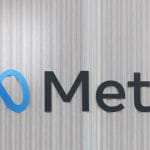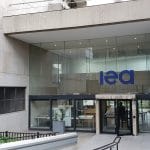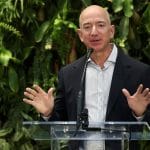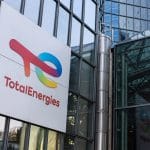PepsiCo Issues New $1.25 Billion 10-Year Green Bond
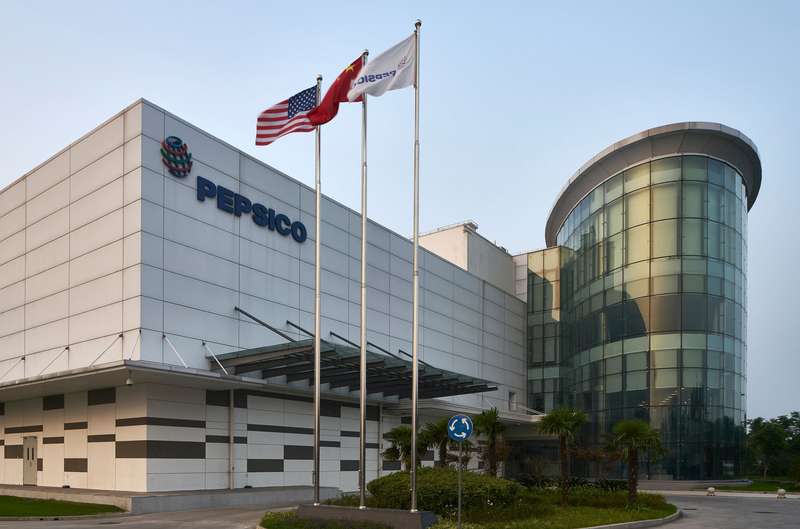
PepsiCo Accelerates pep+ Transformation
PepsiCo, Inc. PepsiCo announced the closing of a new $1.25 billion 10-year Green Bond. The Company will use an amount equivalent to the net proceeds from the offering to fund Eligible Green Projects which will focus on its pep+ (PepsiCo Positive) agenda – the Company’s strategic, end-to-end transformation that places sustainability and human capital at the center of how it will create growth and value. Investments under PepsiCo’s new Green Bond will focus on investments to deliver key environmental sustainability initiatives under two pillars of its pep+ agenda: Positive Agriculture and Positive Value Chain. This will help the company deliver on its aim to operate within planetary boundaries and inspire positive change for the planet and people.
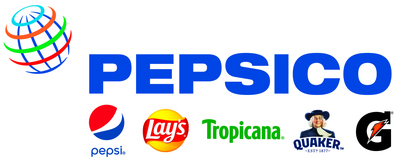
The new Green Bond is PepsiCo’s second since 2019, with $858 million in equivalent proceeds from the $1 billion first Green Bond already allocated to Eligible Green Projects across six continents in categories of sustainable plastics and packaging, decarbonization of our operations and supply chain, and water sustainability.
“We were one of the first food and beverage corporations to issue a Green Bond and that initial funding has played a critical role in our sustainable transformation so far,” stated Jim Andrew, Chief Sustainability Officer, PepsiCo. “While tackling the climate crisis requires a collaborative effort, it is clear that the private sector must play a leadership role. Our new Green Bond will be pivotal to channeling investment into the critical areas required to build a more sustainable and resilient food system.”
See related article: PepsiCo teams up with Iberdrola to drive green electricity at all of its sites in Spain and Portugal
PepsiCo’s new Green Bond Framework outlines the categories where funding can be directed, each one aligning with the UN Sustainable Development Goals (SDGs), which include:
- Regenerative agriculture: PepsiCo’s business starts with agriculture, sourcing more than 25 crops and ingredients from more than 30 countries. As part of its Positive Agriculture pillar of pep+, PepsiCo is working to source key ingredient crops such as potatoes, whole corn and oats in a way that accelerates regenerative agriculture. Investments from the new Green Bond can be used to adopt regenerative agriculture practices across PepsiCo’s supply chain, including towards farmer training, practices to reduce fertilizer and watershed enhancement and improvement projects.
UN SDG Alignment: SDG 2 – Zero hunger and SDG 8 – Decent work and economic growth - Decarbonization and climate resilience within our operations and value chain: By 2030, the Company aims to reduce its absolute greenhouse gas (GHG) emissions by more than 40% against a 2015 baseline, more than doubling its previous climate goal. Equivalent net proceeds from the Green Bond may be used for initiatives to further these goals including on-site sustainable energy generation such as solar installations, investments in greener buildings that receive third-party verified certifications, energy efficiency and/or reducing GHG emissions at facilities, and upgrading of vending and cooling equipment. The funding may also be used towards the expansion of cleaner transportation, such as electric vehicles.
UN SDG Alignment: SDG 7 – Affordable and Clean Energy, and SDG 11 Sustainable Cities and Communities - Circular economy and virgin plastic waste reduction: One of PepsiCo’s key pep+ goals is to strive to use 50 percent recycled plastic content in its packaging by 2030. The Company is already one of the largest users of food-grade rPET (recycled PET plastic) in the world, and the new Green Bond will enable PepsiCo to continue its work to increase the use of more sustainable product packaging including recycled, compostable and reusable materials. In addition, PepsiCo’s new Green Bond Framework enables the Company to direct funding to projects that strengthen recycling infrastructure and increase recycling rates in key markets.
UN SDG Alignment: SDG 9 – Industry, Innovation and Infrastructure, and SDG 12 – Responsible Consumption and Production - Pursuing net positive water impact in owned operations and throughout PepsiCo’s value chain, including those projects positively contributing to communities. Water stewardship has long been one of PepsiCo’s top priorities and PepsiCo has a vision to become Net Water Positive in its operations by 2030 through reducing absolute water use and replenishing back into the local watershed more than 100% of the water used. The new Green Bond equivalent proceeds may be allocated to water recycling and reuse projects, including water efficiency improvements, as well as to investments to replenish watersheds in high water-risk areas through initiatives such as tree plantings, rainwater harvesting and wetlands rehabilitation. PepsiCo is also looking to fund the scaling of drip irrigation or other water savings technologies for the farmers who supply the Company with key crops and ingredients.
UN SDG Alignment: SDG 6 – Clean Water and Sanitation, SDG 12 – Responsible Consumption and Production, and SDG 15 – Life on Land
As part of its Green Bond governance, PepsiCo plans to publish an annual update of the allocation of the proceeds, throughout the term of the Green Bond and until all proceeds have been allocated. The full framework can be viewed here and the annual update will be reported publicly on PepsiCo’s website.
PepsiCo recently published its first Environmental, Social, and Governance (ESG) Summary since the launch of pep+, laying out progress against each of its key pillars. The summary can be viewed here.
Source: PepsiCo

